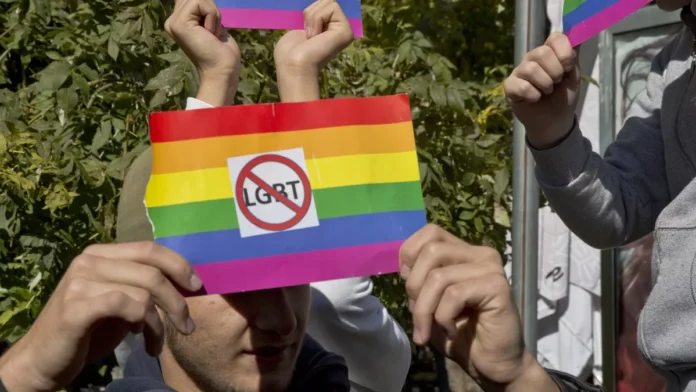In a move that has sparked international outrage and condemnation, the Iraqi Council of Representatives passed a new law criminalizing same-sex relationships and targeting transgender individuals.
The Anti-Prostitution and Homosexuality Law, an amendment to a 1988 statute, imposes severe penalties, including lengthy prison sentences and fines for those found guilty of offenses under its purview.
Under the provisions of the new law, individuals engaging in same-sex relationships could face imprisonment ranging from ten to fifteen years.
Additionally, the legislation criminalizes transgender identity, mandating that individuals identify solely according to their biological sex assigned at birth or face imprisonment ranging from one to three years.
Medical professionals performing gender reassignment surgery also face the prospect of imprisonment under this law, with penalties mirroring those for individuals found in violation of gender identity norms.
Critics of the legislation argue that it not only violates fundamental human rights but also poses a significant threat to freedom of expression and NGO operations within Iraq.
UK Foreign Secretary David Cameron described the law as “dangerous and worrying,” urging the Iraqi government to uphold the rights and freedoms of all its citizens without discrimination.
The United States also condemned the law, with Matthew Miller, spokesperson for the US State Department, expressing concern over its potential impact on marginalized communities in Iraqi society.
Miller highlighted the law’s potential to stifle free speech and expression, inhibit the operations of NGOs, and undermine Iraq’s efforts to diversify its economy and attract foreign investment.
Despite international criticism, proponents of the law, including Independent Iraqi MP Amir Al-Maamouri, justify its passage as a means of upholding religious values and preserving Iraqi customs.
Al-Maamouri stated to the Shafaq News agency that the law would contribute to building a “sound society” in alignment with traditional Iraqi norms.
However, the enactment of this legislation places Iraq in a concerning global context, joining over 60 countries worldwide that criminalize same-sex relationships.
The implications of this law extend beyond the persecution of LGBTQ+ individuals, potentially impacting broader societal dynamics and economic development within the country.
The passage of the Anti-Prostitution and Homosexuality Law underscores the ongoing struggle for LGBTQ+ rights in Iraq and highlights the urgent need for international solidarity in defending human rights and promoting tolerance and acceptance.
As human rights groups continue to denounce this regressive legislation, the world watches closely to see how Iraq navigates the delicate balance between tradition and progress in the pursuit of a more just and inclusive society.
This article was created using automation and was thoroughly edited and fact-checked by one of our editorial staff members

